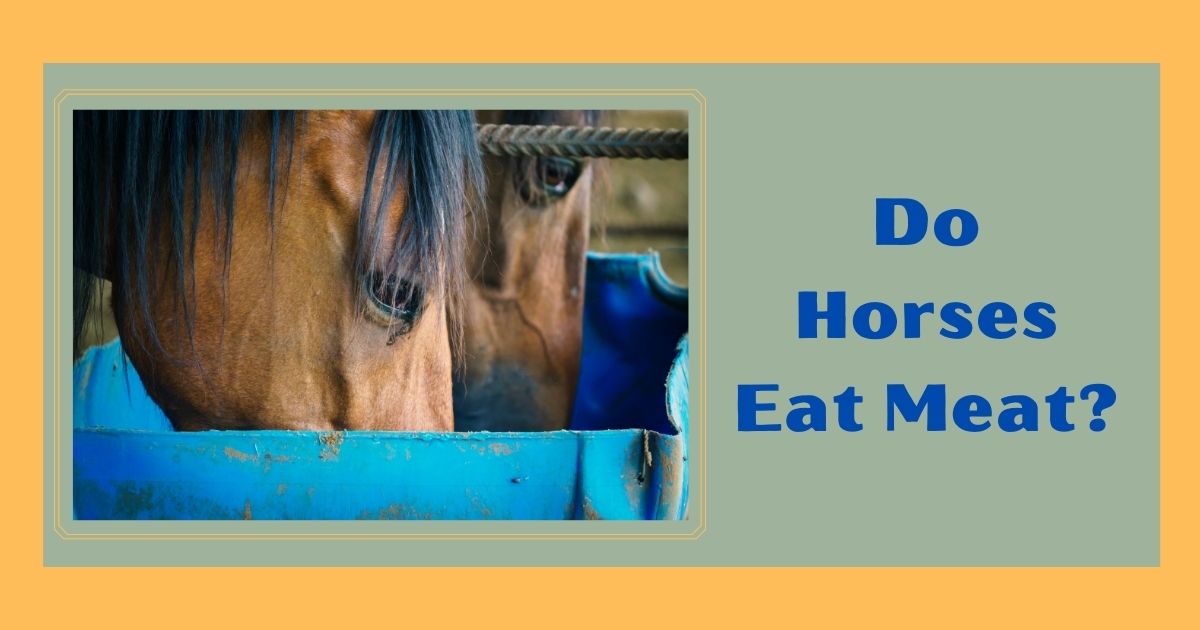
Do Horses Eat Meat? The Horses Guide
Gifts for Horse Lovers Blog Need help? View cart Check out Continue shopping USD Horses are herbivores, but under certain circumstances, they will consume meat. This article explores whether horses naturally eat meat and if it can be part of their diet.

Horses on the Hunt Do horses eat meat? EquiPepper
Do Horses Eat Meat: In the Wild, Grasses are a Staple Food Source for Horses (Credit: BLM Wyoming 2019 . CC BY 2.0.) 2). Shrubs. In addition to grasses, shrubs are another important component of a horse's diet in the wild. Horses have a natural preference for grazing on a variety of shrub species, such as willow, sagebrush, and juniper.
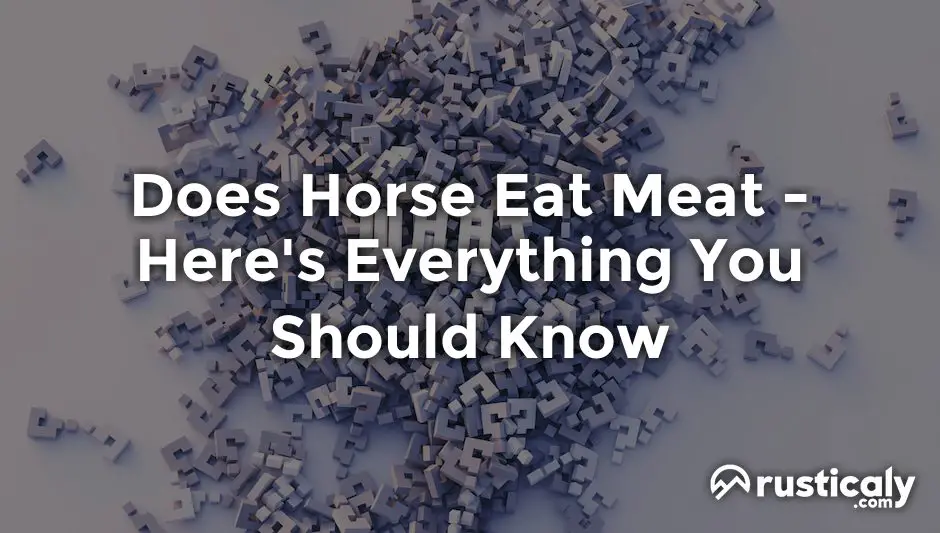
Does Horse Eat Meat Here's Everything You Should Know
V iral videos of a horse eating a chick and a deer eating a bird, as well as the news story of deer scavenging on human corpses at a body farm in Texas, have understandably made a lot of people curious about what is going on. These one-off cases are not a new trend in the herbivore world.
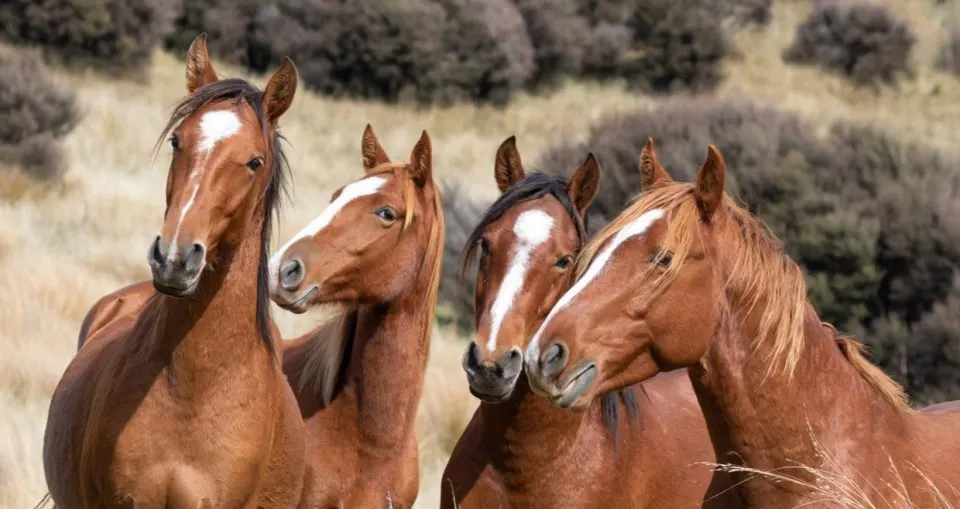
Do Horses Eat Meat? Are Horses Herbivores or Omnivores?
Horses are herbivorous animals, meaning their diet mostly consists of greens, plants, and hay. In fact, their digestive system is evolved to process herbivorous diet efficiently, but not meat. So, while small quantities of meat of carnivore diet might not be problematic, feeding horse large quantity of meat often can cause major health issues.

Can Horses Eat Meat? Do They Like it? (Fact or Fiction)
Horses in the regions of Tibet have a meal of grain mixed with blood. Those that eat meat have a higher value than horses that don't. A German team filmed these meat-eating horses. Bhutan, a country that rests beside Tibet, has the same practice of feeding horses. The equine in Bhutan used to consume yak meat and tiger fat.

Horses CAN Eat Meat And they do in limited situations! Horses, Eat meat, Horse nutrition
Horses can eat sand, wood, manes/tails, and dung for various reasons. For example, horses may be bored or malnourished at times. Horses may just be curious, though, and try different foods to see if they are edible. The Book About Meat-Eating Horses So, will horses eat meat? Some horses will eat meat, though it is not the ideal food for them.

Do Horses Eat Meat? (The Answer Might Surprise You)
As a general rule, horses don't eat other animals. Horses are a prey animal which means that they are the ones that are usually eaten by dangerous predators. We know that horses are a prey animal because they have eyes on the side of their head. And this gives them almost 360-degree vision around their whole body.
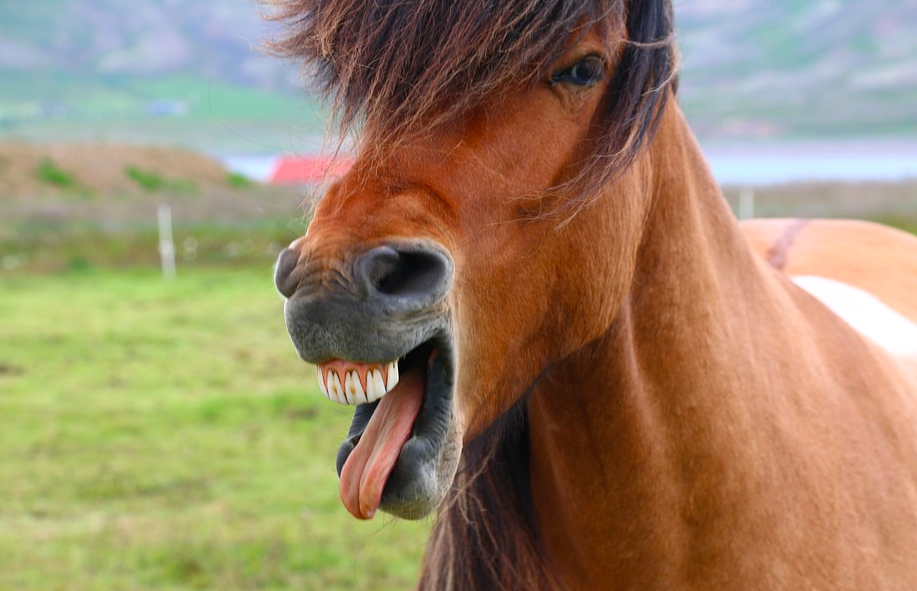
Fact or Fiction Do Horses Eat Meat? (You'll Be Surprised)
Do horses eat meat? While there may be rare instances of horses eating meat or other animals, the equine species are not omnivores. Horses are herbivores, meaning that their bodily systems were created to specifically process plants. Adding other non-plant substances to a horse's diet puts them at risk of certain health problems.

Do Horses Eat Meat? Are Horses Omnivores You May be Surprised
Do Horses Eat Meat? Uncategorized. Horses have long been recognized as majestic and powerful herbivores, known for their ability to graze on a variety of plants. Their diet primarily consists of grasses, hay, and other plant-based materials. However, there has been some speculation and curiosity regarding whether horses can consume and digest meat.

Can Horses Eat Meat? National Equine
The short answer is that horses are herbivores and do not typically eat meat as part of their natural diet. While horses are not designed to be carnivores, there have been instances of horses consuming animal products, such as meat or eggs. However, it is important to note that these situations are not the norm and should not be considered a.

Do Horses Eat Meat? Horses, Eat meat, Horse feed
Do Horses Ever Eat Meat? Horses are herbivores which means they eat plants and hay. Only in Iceland will people feed horses dried fish to give them more proteins. The digestive system of horses is geared toward eating plans and hay and should not have to process meat. Why Do Horses Not Eat Meat?

Eating Horse Meat British Cultural Taboos
So do horses eat meat? Read on to find out. Table of Contents Omnivores vs Herbivores Horse Anatomy Horse Nutrition Do Horses Eat Meat? FAQs in Relation to Do Horses Eat Meat Can horses be fed meat? Why do horses eat chicken? Do horses eat cats? Were there carnivorous horses? Conclusion Omnivores vs Herbivores Omnivores vs Herbivores:
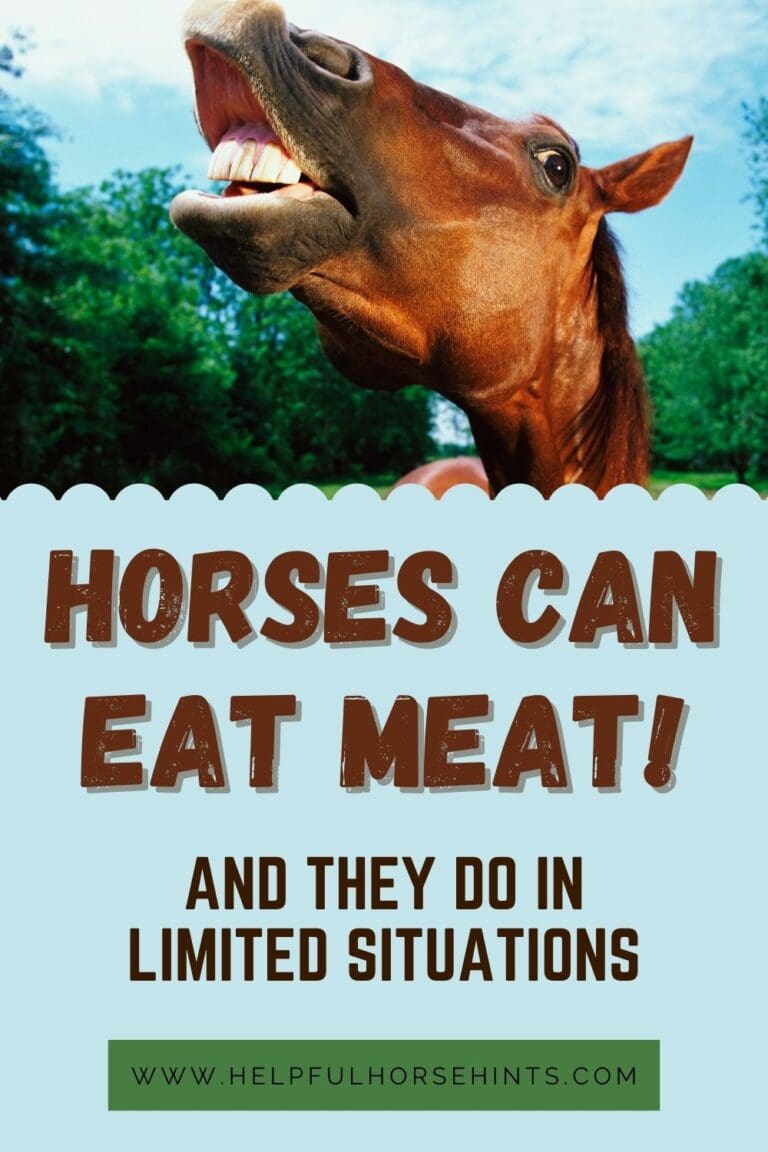
Horses Can Eat Meat and They Do In Limited Situations Helpful Horse Hints
In certain situations, a horse can eat meat when there's no other choice. Your horse's digestive tract will tolerate and digest small amounts without much of an issue. More on a horse's digestive system later…. Domesticated horses have even been known to eat baby chicks, birds, mice, and farmland pests. It's a rare event, but does.

Do Horses Eat Meat? Understanding Horses' Herbivorous Nature
Horses are herbivores and they feed primarily on grass and hay. However, the question remains - do horses eat meat? The answer is a bit more complex than a simple yes or no. In this article, we'll explore the diet of horses and whether or not they are able to digest meat. Table of Contents Toggle Can Horses Digest Meat? Herbivores or Carnivores?
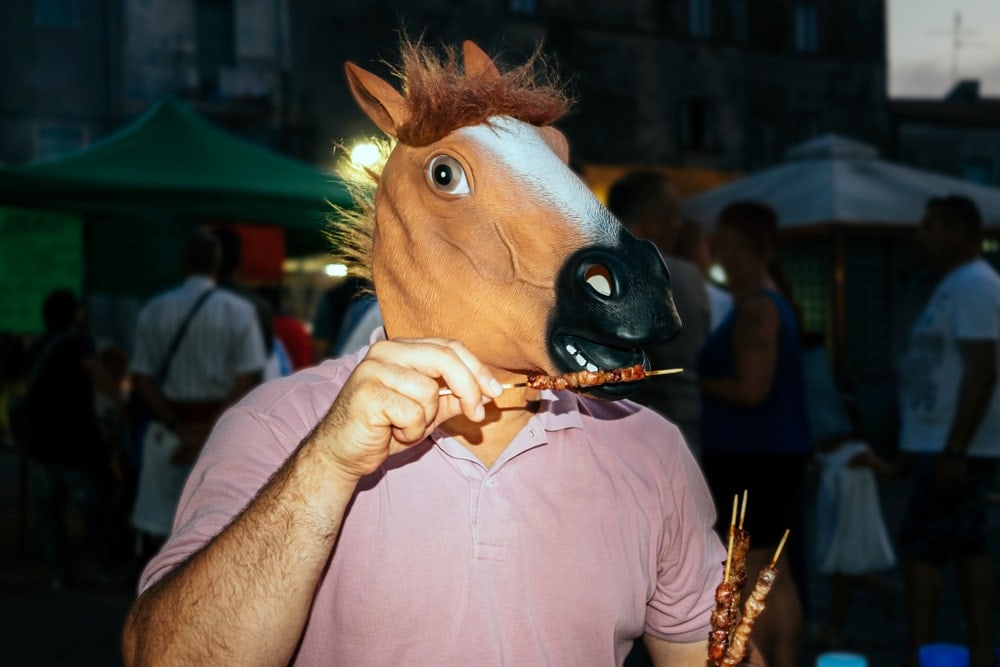
Can Horses Eat Meat? » Petsoid
Conclusion Related Post Do Horses Eat Meat? Horses aren't supposed to eat meat because they are herbivores. There are other reasons why horses shouldn't eat meat. However, there have been incidences where herbivores (including horses) have eaten meat. There are publications that claim horses can eat meat when it is fed to them.

a brown horse running across a dirt field next to a white sheep and trees with text overlay that
Horse mouths contain twelve incisors that are used for cutting plants, twelve premolars and twelve molars, which are used to grind down on traditionally tough stems and leaves. Internal Digestion A small stomach is perfect for animals who graze. They only need to hold a small amount of feed because they consume their forage relatively slowly.